Anxious attachment style: navigating anxiety in relationships
By Melissa Pritchard
My anxious attachment style was something I was completely unaware of until I got into a long-term relationship with my partner whom I have been with for the past 3 years. It was only through being in this relationship that I came to realise how anxiously attached I was, and this became one of my biggest struggles. As a counselling student, my course involved continuous personal development which allowed me to delve into what might be the root of my preoccupied attachment style, and it was whilst educating myself that I found that this is a subject which isn’t sufficiently at the forefront.
My dad was an absent parent over the years who was inconsistent with his contact, and which created an unpredictable and insecure environment. He was dealing with his own issues of alcoholism which made him an emotionally unavailable father who eventually left me as a child. My mother had her own struggles that she was dealing with and was unintentionally emotionally unavailable to me at times during my childhood. These experiences led to me feel extremely insecure; ultimately subconsciously transferring this insecurity, self-doubt and fear of abandonment to my current relationship as an adult.
“In order for children to thrive their attachment figures should be warm and emotionally available” (Bowlby, 1961; 1968).
I am still learning about my anxious attachment and have become better at managing it, solely by developing self-understanding and self-compassion toward my attachment style and myself.
Read on to find out more about anxious attachment and the strategies available for management of the challenges that come with having this attachment style.
Understanding Anxious Attachment
The origins of anxious attachment
Anxious attachment derives from Bowlby’s theory of attachment theory, which suggests the importance of early attachments, referring to our relationships with our parents. The theory proposes that the quality of our relationships with our primary caregivers can determine our attachment style later in life in relation to our romantic relationships and can impact our emotional well-being. Bowlby proposed four attachment styles:
● Secure
● Anxious or preoccupied
● Avoidant
● Disorganised
Anxious attachment can derive from a fear of abandonment, often ingrained in early childhood experiences with our primary caregivers.
Signs of anxious attachment in relationships
● Fear of rejection by a partner
● Scanning for signs of danger e.g. abandonment or rejection (hypervigilance)
● Feeling extremely overwhelmed, vulnerable, and needy
● Sensitivity to any potential signs of rejection
● Unintentionally starting fights, creating accusations leading to distance in relationships
● Intense fear of abandonment
● Excessive need for reassurance
● Struggling to trust
● Becoming over-dependant on the relationship to define self-worth
● Emotional volatility or mood swings: going from feeling very in love or content to extremely anxious or angry towards your partner
● Overthinking or over analysis which can lead to taking certain issues out of proportion
● Possessiveness: feeling the need to control your partner or becoming possessive in an attempt to prevent them leaving or rejecting you e.g. stopping them from going out with their friends
If this is you, here are some ways you can deal with anxious attachment.
Dealing With Anxious Attachment
Self-understanding
The first way of dealing with anxious attachment would be to develop a sense of self-awareness regarding it, can you recognise the signs? Do you know where your anxious attachment stems from? Journaling can be the first way of understanding it, here are some useful journaling exercises.
Becoming aware of your attachment style
● What has led you to feel anxiously attached?
● What role do you think your parents may have played in this?
● Are there any early experiences you can recall which may have led to you being anxiously attached?
● How would you describe your attachment style?
● What patterns can you identify, how does this impact your relationships and well-being?
● Is there anything that can trigger your anxious attachment?
Dealing with your attachment style
● What do you think might help your attachment style? Try and identify some steps you can take to work through it. For example: attending therapy, making a list of resources which may be useful, journaling regularly etc. Explore what resonates with you.
● What self-care practices might help you to boost your self-esteem?
● What makes you a good partner and a good person, what are your best qualities?
Reading books can also be a great way of developing self-understanding; doing this has personally helped me to understand myself and why I struggle with feeling anxiously attached.
Developing a protocol within your relationship
Asserting boundaries and helpful and healthy communication in your relationship is vital, tell your partner how you feel and any concerns you may have by voicing your needs.
Self-care and self-compassion
Self-care and compassion exercises can help to build your sense of self-worth and self-esteem to start building up a stronger sense of security in yourself which can be transferred to your relationships. Here are some self-care and self-compassion exercises:
● Engaging in hobbies
● Journaling and self-reflection
● Socialising or planning things with loved ones
● Setting boundaries in your relationships is also a form of self-care!
● Gratitude practice
Mindfulness
● Complete a guided meditation or mindfulness exercise on YouTube
● Eat something mindfully, notice the texture and taste in your mouth
● Become mindful of your surroundings, notice the sounds, smells and colours around you
Finally, seeking professional help to explore your attachment style, childhood wounds, and any struggles this might bring to your relationship or emotional–wellbeing is something worth considering. Talking therapies are a useful way of exploring your experiences. Find out more about Anxiety UK’s talking therapy services here, where Compassion Focused Therapy (CFT) amongst other therapies is available.
The views expressed by the contributor are not necessarily those of Anxiety UK, nor can we guarantee the accuracy of the information provided. If you would like to write a blog for AUK please email [email protected] for more information.









